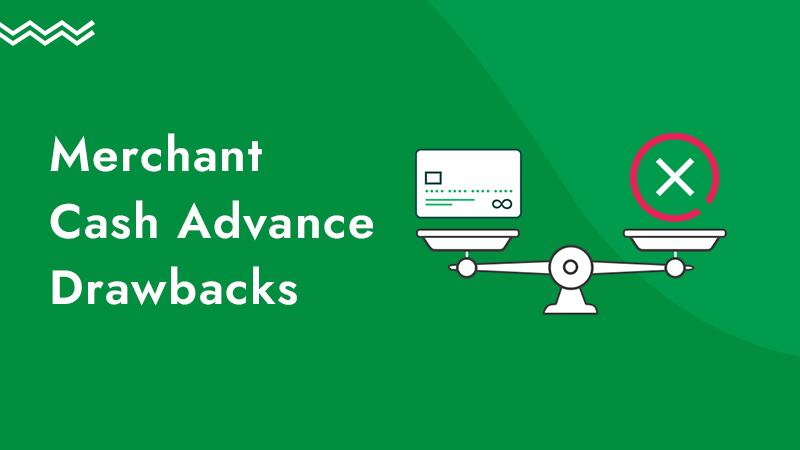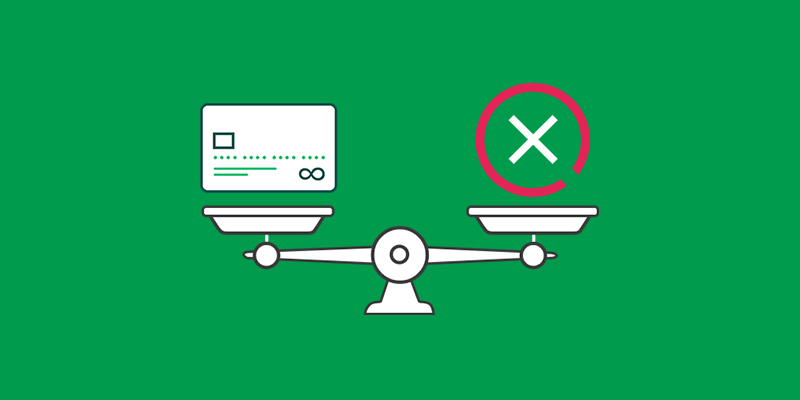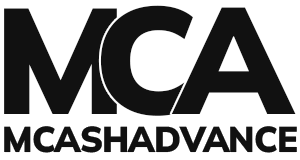
A survey from a U.S. Bank revealed that 82% of small businesses in the USA go out of business because of cash flow problems. Merchant Cash Advances (MCAs) provide an easy way to get funding to help with cash flow problems, but they also have potential drawbacks you need to be aware of. It’s important to know all the possible drawbacks of a merchant cash advance that could impact your business as well as the benefits this type of alternative business financing offers.
In this article, we’ll outline the 10 key drawbacks of MCAs that you should consider. While not every drawback may apply to your specific financial situation, understanding the full range of potential downsides will give you a clearer picture of the risks involved.
What are the Drawbacks of an MCA?
Below is a table highlighting the 10 potential drawbacks of an MCA:
| Drawback | Description |
|---|---|
| 01. More Expensive than Traditional Loans | You may face higher costs with an MCA compared to traditional loans, as the lender charges elevated fees to offset their greater risk. |
| 02. Daily Repayments May Impact Cash Flow | Daily deductions from your credit card sales may impact your cash flow, especially on high-sales days. |
| 03. Cash-Only Businesses are Ineligible | If your business doesn’t accept credit card payments, you’re ineligible for an MCA. |
| 04. May Require Change of Merchant Processor | Some MCA providers may require you to switch to their chosen credit card processor for the duration of the cash advance until it’s repaid. |
| 05. Won’t Help Improve Credit Score | MCAs do not appear on your credit report, so making on-time repayments won’t improve your business credit score. |
| 06. Higher Rates for High-Risk Businesses | If your business is perceived as high-risk, expect a higher factor rate to offset the lender’s added risk. |
| 07. No Savings on Early Repayment | You’re still obligated to pay both the advance amount and the full factor rate fee if you repay your MCA early. |
| 08. Confusing Fee Structure | MCAs use a factor rate to determine the cost of funding, making it initially difficult to understand the true expense of the advance. |
| 09. Lack of Industry Regulation | MCA providers are not subject to the same regulations as traditional lenders, potentially making your MCA agreements less transparent. |
| 10. Strict Legal Terms | Though MCAs don’t require collateral, you’re still bound by legal conditions that may lead to penalties or legal action for non-repayment. |

Let’s break down each drawback in more detail:
Drawback 1: More Expensive than Traditional Loans
MCAs often come with higher rates and fees, making them a more expensive financing option for your business. For example, if you borrow $10,000 from a bank at a 9.5% interest rate, your total repayment would be $10,950. In contrast, securing a $10,000 cash advance from an MCA provider at a 1.25 factor rate would result in a total repayment of $12,500. This makes the MCA $1,550 more expensive than a traditional bank loan. The higher the risk the MCA provider perceives in funding your business, the higher the factor rate will be to offset that risk. Therefore, it’s crucial to carefully consider if you can repay the higher rates for this type of financing.
Drawback 2: Daily Repayments May Impact Cash Flow
Every day, a fixed percentage of your credit card sales goes toward repaying your cash advance. Although this percentage is consistent, the actual cash amount you pay back can fluctuate. On high-sales days, you’ll end up paying back more in cash, which can squeeze your available cash flow. Additionally, this type of financing is short-term, with repayment schedules spanning 3-18 months. This compressed timeline results in higher daily repayments compared to traditional medium- to long-term loans. Before taking out such a cash advance, it is important to evaluate whether these daily deductions may negatively affect your cash flow.
Drawback 3: Cash-Only Businesses are Ineligible
MCAs are specifically designed for businesses with regular credit card sales, making them inaccessible if your small business primarily operates on cash transactions only. They are also only available if your business processes at least $8,000 in credit card transactions each month.
Drawback 4: May Require Change of Merchant Processor
Sometimes, the credit card processing service you use in your business may not be compatible with the MCA provider’s repayment setup. In such cases, the MCA provider may require you to switch to a different, approved merchant processor for the duration of your cash advance repayment. This effectively locks you into using that specific processor until you’ve fully repaid the advance. After repayment, you have the option to either return to your original processor or continue with the new one. This constraint adds another layer of complexity to consider before opting for an MCA.
Drawback 5: Won’t Help Improve Credit Score
Unlike traditional business loans, MCAs don’t help your business credit score. MCA providers don’t report your repayment history to credit bureaus, so even if you pay on time, it won’t improve your credit score or establish better credit history.
Drawback 6: Higher Rates for High-Risk Businesses
If your business falls into the high-risk category due to factors like poor credit history, unstable revenue, or operating in an industry with high failure rates such as restaurants, you can still qualify for a cash advance. However, you will face a higher factor rate that determines your total repayment amount. Recognizing the increased risk, the MCA provider will offer a rate that is higher than what businesses with strong credit and stable financials would receive. So, if you have a high-risk business expect to pay more when getting an advance.
Drawback 7: No Savings on Early Repayment
Accepting a cash advance from an MCA provider means committing to repay the full amount, including any fees, at a predetermined rate. Unlike traditional loans, which often reward early repayment with reduced interest, MCAs offer no such benefit. Even if your business performs well and you’re able to repay the advance ahead of schedule, you’re still obligated to pay the full agreed-upon amount. This structure eliminates the possibility of lowering the overall financial burden through early repayment, making MCAs less flexible in terms of cost management.
Drawback 8: Confusing Fee Structure
MCAs don’t function like traditional loans; they use a factor rate instead of interest rates to calculate your repayment amount. This unique approach, along with terms like holdback percentage and additional fees, can make it difficult to understand the true costs and MCA, making it vital to carefully review and understand the confusing terms before committing to an MCA.
Drawback 9: Lack of Industry Regulation
MCA providers in the USA have never been subject to the same regulations as traditional business lenders because an MCA is not a loan; it’s an advance on cash, which makes it difficult to impose regulations on an MCA company. They are not regulated by standard federal and state-level business lending regulatory bodies in the USA, including the US Consumer Financial Protection Bureau. This regulatory gap means you need to be extra cautious and review the agreement the MCA provider offers you carefully, as their terms are not governed by typical lending laws.
difficulty of imposing regulations
Drawback 10: Strict Legal Terms
When you enter into an agreement with an MCA provider, you’re bound by specific terms and conditions, just as you would be with a traditional loan. However, because MCAs are less regulated than traditional loans, the agreement may contain terms that are less favorable to you. Failure to repay the cash advance can result in legal consequences, such as penalties or legal action, similar to defaulting on a traditional loan. Therefore, it’s essential to read and fully understand the terms and conditions of the MCA agreement before signing it.
Ready to Apply?
or learn more about merchant cash advances
The Bottom Line
MCAs come with potential drawbacks that warrant careful consideration. They are generally more expensive due to higher rates and fees, and their daily repayment structure may strain your cash flow. They’re not an option for businesses that operate primarily on cash transactions and may require you to switch merchant processors. Unlike traditional loans, MCAs don’t improve your credit score and offer no benefits for early repayment. High-risk businesses face higher costs, and the industry’s lack of regulation adds an extra layer of risk. Their confusing fee structures and legally binding terms can make them less favorable than traditional loans. That is why it’s crucial to weigh these factors carefully before opting for an MCA and why it’s so important to find a reputable MCA provider to work with.

